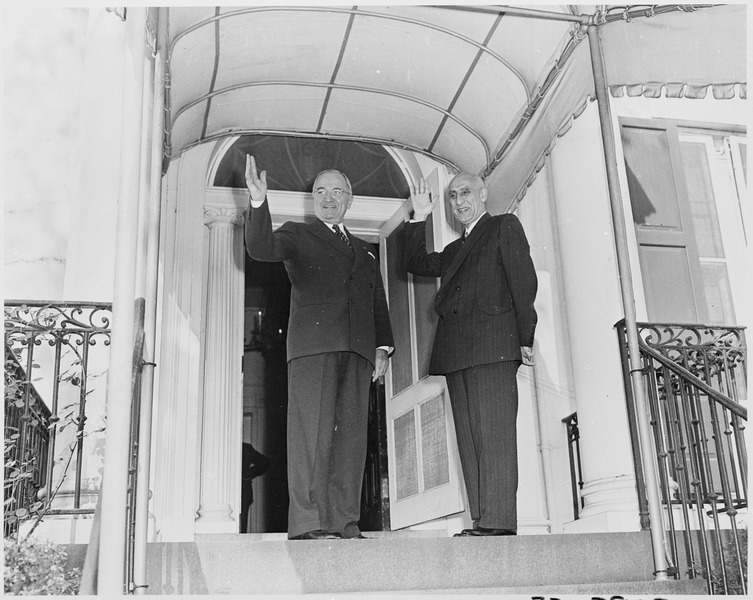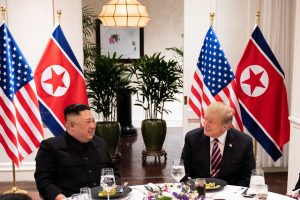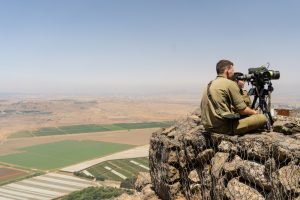by Henry Precht
Rare is the Middle East scholar or diplomat who departs from his customary groove in analyzing events in that region. Alas, I am — or was — one of the latter. Now, however, there come two books that just may cause a minor swerve from the usual rut of thinking about Iran, especially by Iranians. Nothing revolutionary to be sure — that’s out of style — but prompting reflection.
The first volume is a biography of Mohammed Mossadegh, Patriot of Persia, by Christopher de Bellaigue, a British journalist resident in Tehran for the past 10 years where he has spent a fair amount of time in archives and interviews with figures from the fifties. The product is like a novel of the upper classes, rich with small stories and psychological quirks that lead us from the ancient land that was Iran in the 19th century to the state struggling against imperialism and trying awkwardly to become modern in the mid-20th century.
The focus, of course, is on the nationalization of Iran’s oil controlled by the British, which excited American Cold War fears of communism and produced the coup of August 19, 1953. The multiple lessons lead to one judgment: it didn’t have to end that way. The principal culprit was Mossadegh himself. A patriot, he loved his country more than its people and realities. A democrat, he ruled autocratically when it suited him. An old man encrusted with the past, he overplayed his physical condition and the drama of his situation. In three words, he was a man of rectitude and ineptitude. He picked poor advisers, poorly maintained alliances, was a terrible administrator and allowed his emotions to govern his decisions. He thought he could rely on Washington to help him with London. He underestimated the conflicting egos of his local allies that led them to abandon him. But he was a true patriot and his people loved him.
The British and then the Americans were lucky in this maladroit antagonist, but they were clueless in understanding what was happening in Iran and the nationalism they were facing. No matter, they knew how to spread their money around. They knew how to concentrate their efforts, pick competent men to work for them and influence bits of public opinion in their favor. All with nary a thought for what their work might lead to. (I suppose they would say that 25 years of imperial rule was a pretty good bargain, ignoring the succeeding longer period of bad times.)
The chief lesson I draw for outsiders is the obvious one: try, try harder, to understand Iran, its seeming weaknesses, but also its hard points. Be patient when they stumble, be persistent in trying to reach them. Think much farther ahead than the next election.
The second book is not about Iran, but it warns against what that country is up against in the attitude of its principal antagonist Israel. Fortress Israel: The Inside Story of the Military Elite Who Run the Country — and Why They Can’t Make Peace by Patrick Tyler, an ace American ex-journalist, who helps us understand what Iran and the rest of the concerned world face when Israel threatens military action. The principal source of the militarism that grips the state and its people is the legacy of David Ben Gurion who cultivated a clique of constant warriors led by Moshe Dayan and Ariel Sharron. They created a culture that emphasized harsh overreaction and preemption and that effectively eliminated from the leadership those dreamers (e.g. Moshe Sharett) who early on sought negotiations and accommodation with the Arabs.
Like the CIA agents in Iran, Ben Gurion and his friends knew how to manipulate the fears and convictions of their public — as well as America’s. His heirs — soldiers become politicians — have known how to resist and overcome external pressure and prosper. Obama’s failure on settlements as Netanyahu stood up to him was instructive for the president — a lesson all preceding presidents learned in their time. We can only hope that Obama’s course of instruction came with a body and courage building plan.
If our president is not up to the struggle — as Eisenhower, Carter and the first Bush were in varying degrees — disaster impends. Iran seems to have learned a little about avoiding provocative rhetoric; they might take further lessons in treading softly and reflecting on Mossadegh’s fate. The danger is real.
Photo: US President Harry S. Truman meets Iranian Prime Minister Mohammad Mossadegh on 23 October 1951.






Every thesis has an antithesis. This is the dialectic of life. Israel’s harsh actions created Hezbollah that gave Israel their Vietnam in Southern Lebanon. Israel lost over 1000 soldiers in South Lebanon, per capita, on par with US casualties in Vietnam. Paraphrasing Khamenei, Iranians are no longer the weeping old men, they have learned their lesson. Israelis know that well. Mossadegh’s fault was his naivete. Had he read a single book on US history, he would not have fallen for the lies of American ambasador in Iran. This is accounted well in Stephen Kinzer’s book.